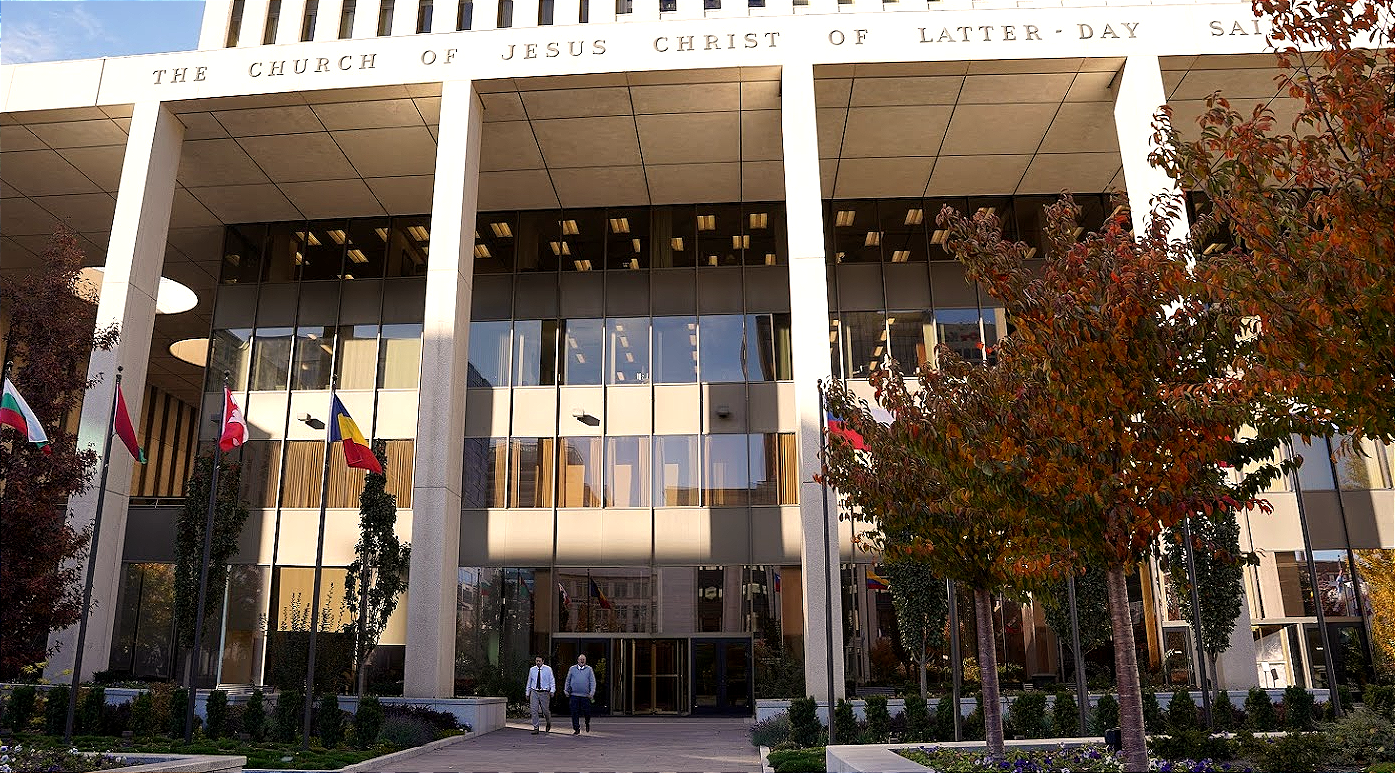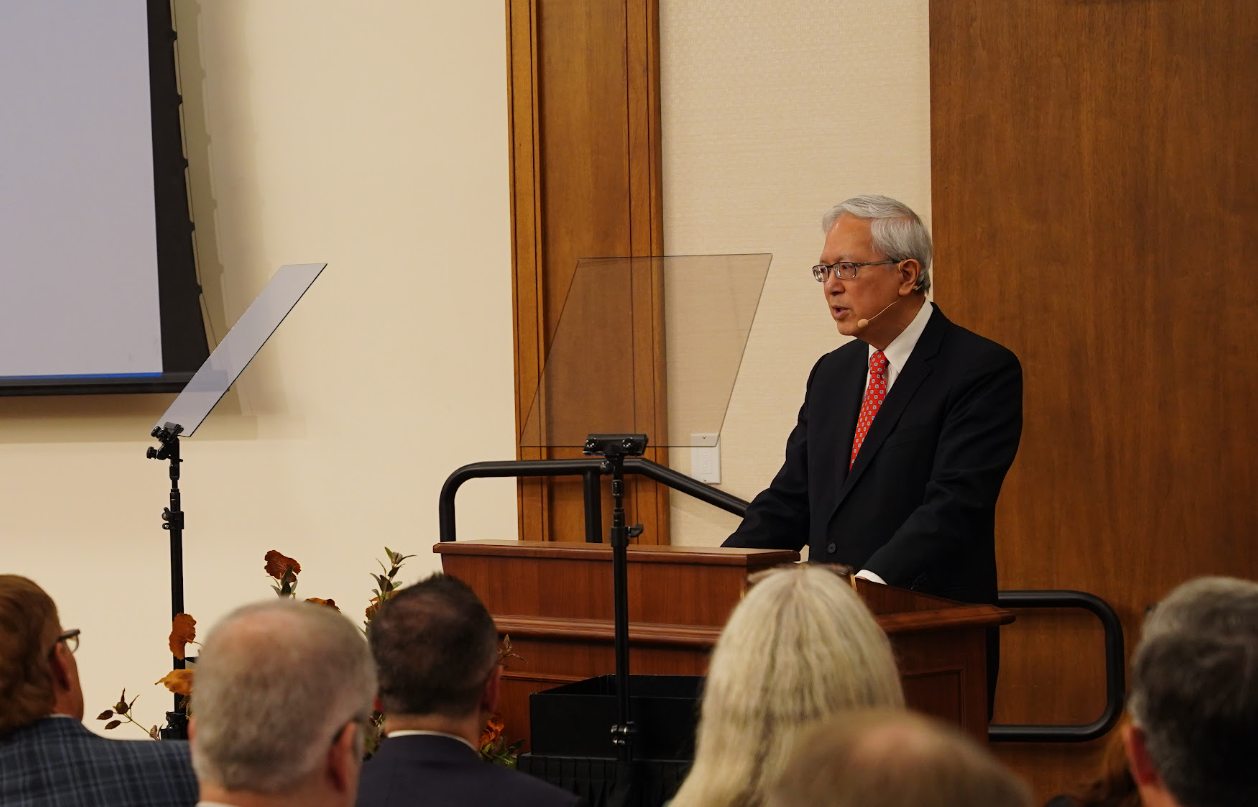

Salt Lake City, Utah — November 6, 2025
In a rare public address blending theology, ethics, and technology, Elder Gerrit W. Gong, a member of the Quorum of the Twelve Apostles of The Church of Jesus Christ of Latter-day Saints, delivered the keynote at the Organized Intelligence 2025 Conference, urging a careful moral framework for artificial intelligence.
“AI is not, and cannot be, God,” Elder Gong told a gathering of technologists, scholars, and faith leaders at the Church Office Building in downtown Salt Lake City. “AI algorithms do not love, bless, or relate to us by divine covenant. Deity is never artificial at any time, in any way.”
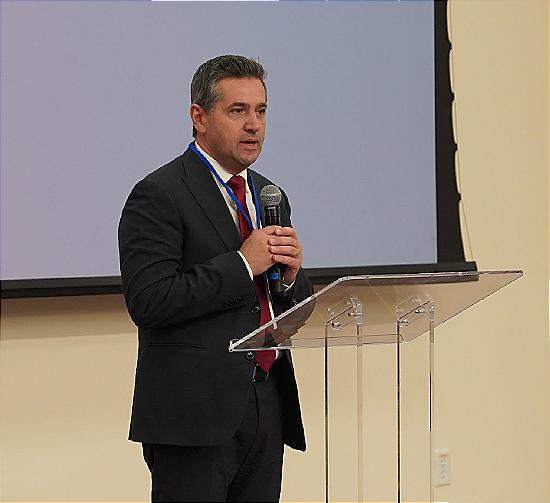
The two-day conference, organized by Medlir Mema and Zach Davis and subtitled “Latter-day Saint Perspectives on AI,” brought together experts to the Church Office Building in downtown Salt Lake City. Attendees came from multiple disciplines to examine how faith traditions can influence the ethical development of AI.
Supported by the Future of Life Institute, Faith Matters Foundation, Cicero Group, Clarion AI Partners, Sutherland Institute, The John A. and Leah D. Widtsoe Foundation, International Society, the BH Roberts Foundation, G20 Interfaith Forum, LDSPMA, and Utah Valley University, the event aimed to establish a faith-based voice in the global conversation on artificial intelligence.
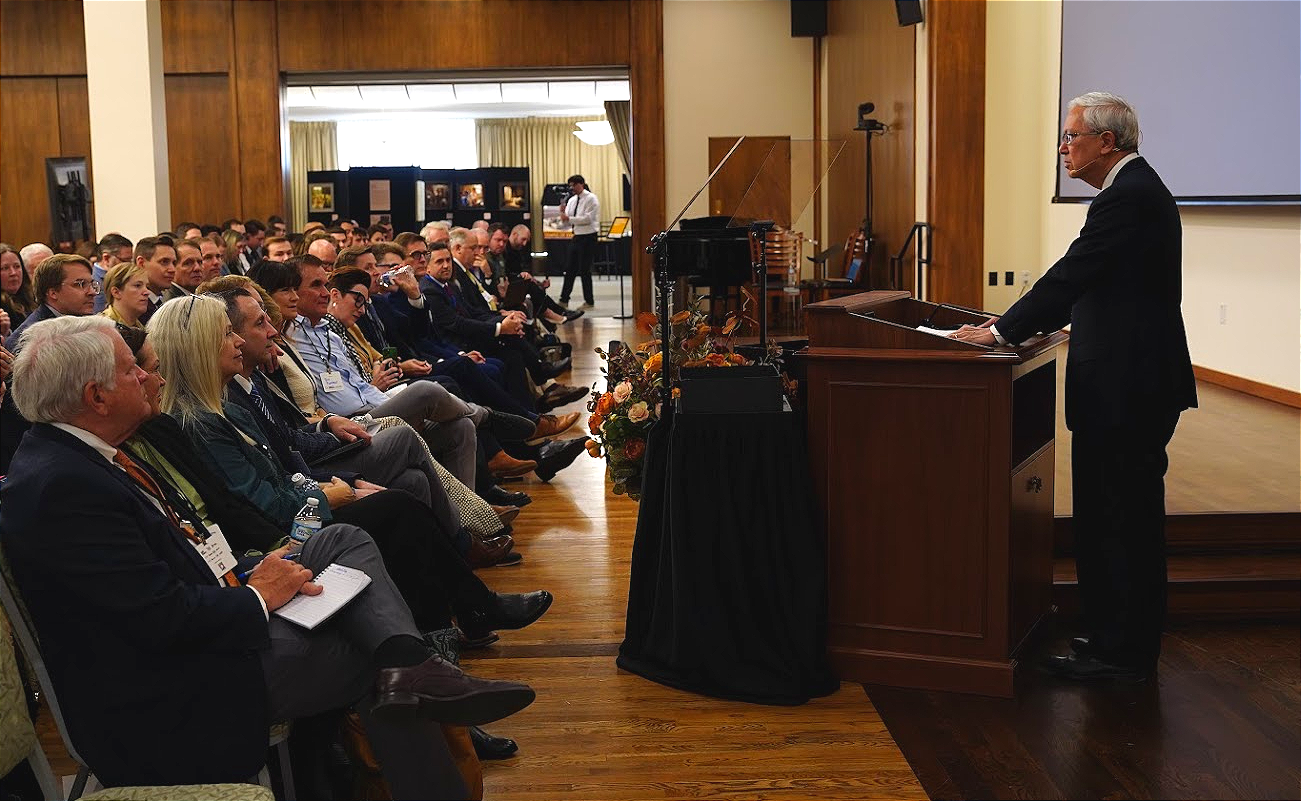
Anchoring AI in Covenant Belonging
Elder Gerrit Gong framed discipleship in the age of AI around four core relationships that form the foundation of covenant belonging. First, the vertical connection with Thou — the Divine — emphasizes our personal relationship with God and the eternal significance of covenant faithfulness. Second, our horizontal ties with They — Society highlight how we engage with and serve others in our communities. Third, the often-overlooked relationship with It — Nature reminds us that stewardship of the natural world is integral to moral and spiritual growth. Finally, the inward connection with I — Self underscores the importance of self-awareness, moral agency, and personal development.
Elder Gong cautioned that while AI can assist with knowledge, organization, and problem-solving, it cannot replicate these covenantal relationships. Technology may be a tool, but only human and divine engagement can cultivate meaning, connection, and enduring spiritual growth.
“Even if we achieve artificial general intelligence or superintelligence, God is God,” he said. “Man can create AI, but AI cannot create God.”
Elder Gong drew a sharp line between human and artificial intelligence. Whereas divine intelligence is eternal, human intelligence is a God-given gift, and AI is derivative — a tool created by humans. Misunderstanding these distinctions, he warned, risks distorting relationships with God, society, the natural world, and the self.
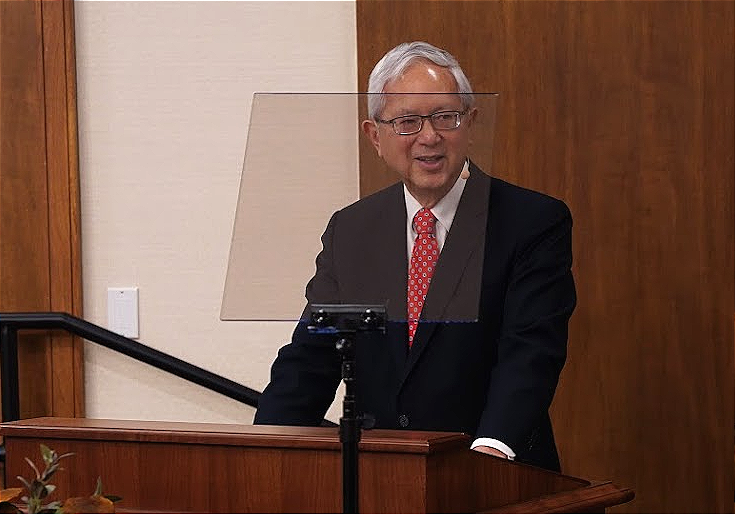
The Risks and Rewards of AI
The apostle highlighted the dual nature of AI, praising its potential while cautioning against overreliance and misuse. He raised concerns about societal isolation, overdependence on chatbots for companionship, and the concentration of technological and financial power in a handful of companies racing toward artificial general intelligence.
Nearly 500 private AI companies, many in Silicon Valley, are valued at over $1 billion, noted Elder Gong. “Profit-driven technology companies should not determine society’s moral compass,” he said. “All societies and people share a vital interest to encourage accurate and respectful AI.”
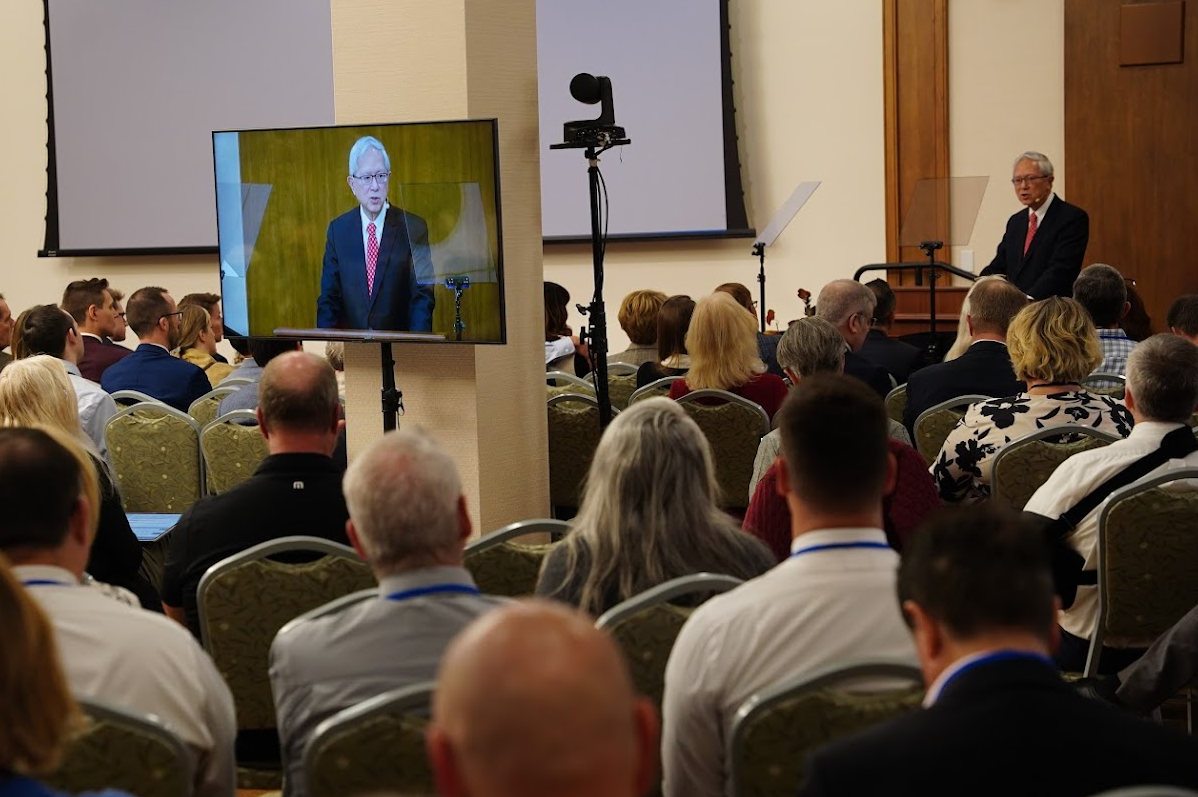
At the same time, he acknowledged the technology’s potential to enhance human life. AI could help catalog global family histories, translate church materials for members in 125 languages, and produce personalized educational resources for congregations across 195 countries.
Church Governance in AI
The Church of Jesus Christ of Latter-day Saints is already establishing internal governance for AI. Elder Gong outlined guiding principles across spiritual connection, transparency, pluralism, privacy, accuracy, security, age appropriateness, accountability, and others. These policies include limits on AI-generated images and texts, particularly in materials depicting Jesus Christ, Heavenly Father, or church leaders.
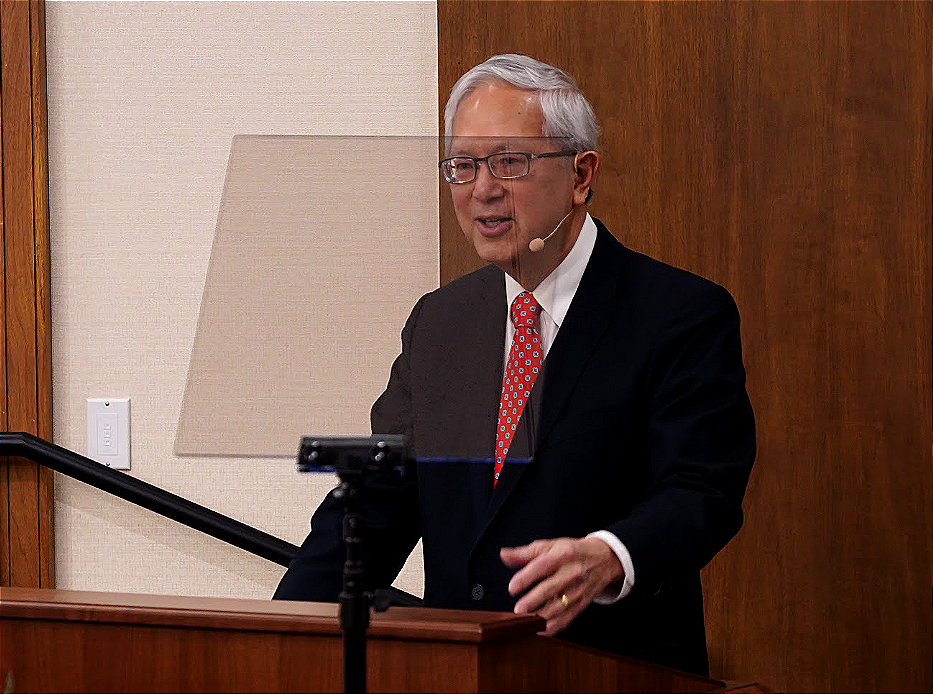
The Church has also partnered with universities including Baylor, Notre Dame, and Yeshiva to prototype a Faith and Ethics AI Evaluation — a first-of-its-kind effort to assess how AI handles questions of belief, dignity, and moral guidance. The initiative aims to ensure AI responses are accurate, respectful, and aligned with ethical principles drawn from multiple religious traditions.
“This is not about endorsing AI as a source of truth,” Elder Gong explained. “It is about ensuring that when people turn to AI for guidance, the answers do not misrepresent faith or human dignity.”
AI in Action: LDSbot
Josh Coates, former CEO of leading ed tech company Instructure, founder of the BH Roberts Foundation, and amateur welder, presented a compelling example of AI applied to faith-based learning. Coates’ team developed LDSbot.com, an AI tool designed to help Latter-day Saints explore questions about doctrine, scripture, and personal spirituality.
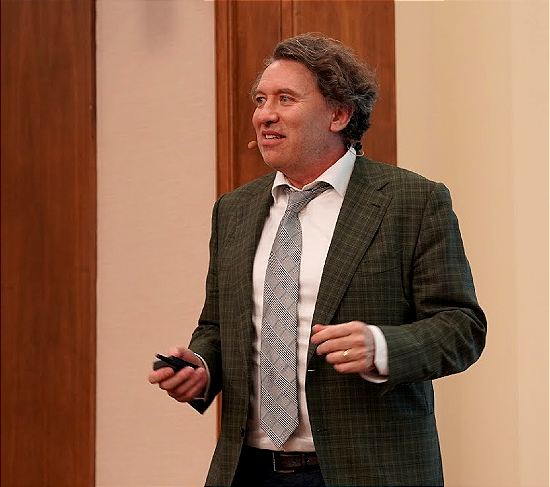
“Two years ago, I threw together a bot called LDSbot,” Coates said, showing a graphic of usage patterns. “We’ve had about 800,000 conversations with a couple hundred thousand different users. Today, about 1,500 people use it every day, and 2,500 on Sundays.”
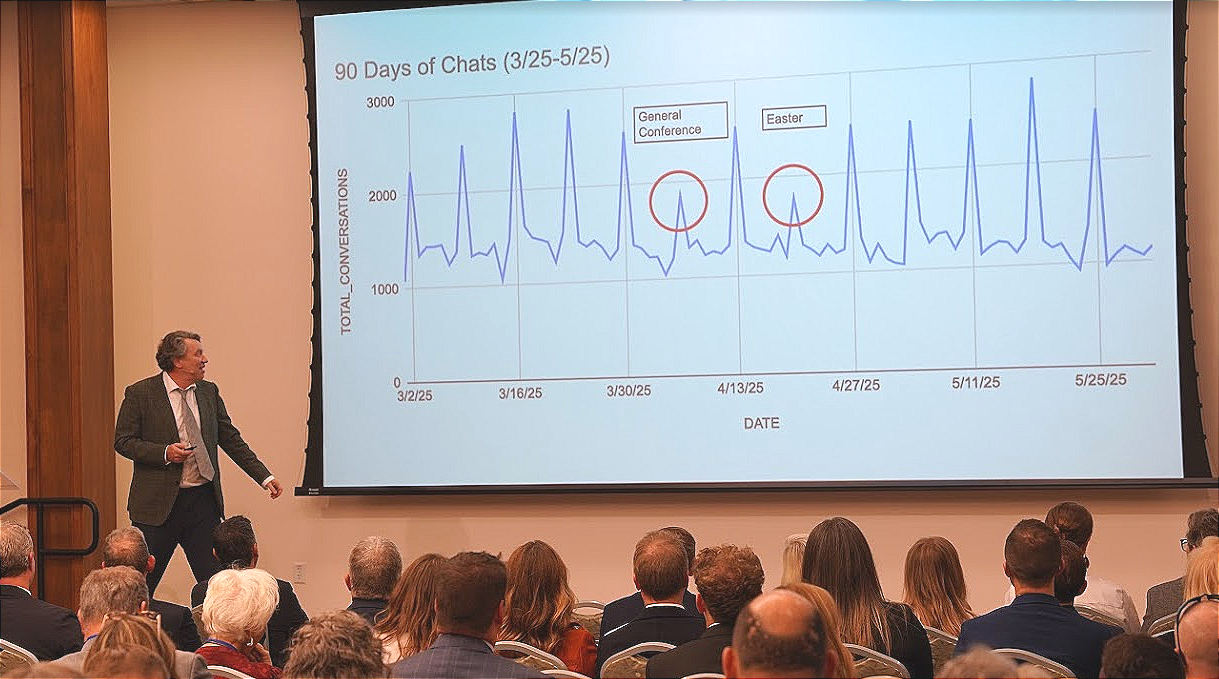
LDSbot can operate in text and voice modes, drawing from official Church materials including scriptures, the Church Handbook, Come, Follow Me lessons, and general conference talks. If the bot cannot answer a question, it can search the church website for guidance. Coates emphasized that much of the interaction is anonymous, with only a handful of authorized personnel able to access registered accounts.
“What’s interesting and valuable is the data we’ve been able to collect,” Coates said. “People talk to LDSbot about everything from coffee cake to scripture questions, from missionary concerns to faith struggles. The majority of interactions are sincere inquiries about doctrine, theology, and scripture. It’s incredibly good news that people want to use this as a tool to learn.”
Coates shared examples highlighting the diversity of conversations: basic doctrinal questions (“Was King Solomon a prophet?”), lesson preparation requests (“Give me a two-minute lesson on stewardship and the law of consecration”), and deeply personal queries about missionary service, personal revelation, or faith transitions. Even sensitive topics, such as LGBTQ+ identity and familial conflict, were approached with AI responses designed to encourage reflection and respectful guidance.
“The bot doesn’t replace a bishop or spiritual advisor,” Coates said. “But it’s a safe place for people to test ideas, clarify understanding, and gather information before engaging with leaders or family.”
AI as a Mirror of Faith Communities
Coates’ presentation revealed patterns in AI usage: most chats are short, under 20 messages, though a few users engage in hundreds of exchanges. Sunday sees spikes in activity, likely coinciding with personal gospel study and Gospel Doctrine classes. Coates joked that some members are quietly using LDSbot to fact-check their Gospel Doctrine classes — a 21st-century spin on paying attention in Sunday school
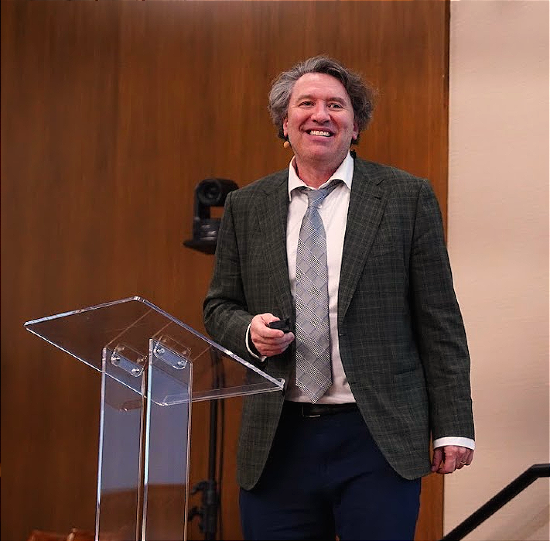
Geographically, users are concentrated in regions with large Latter-day Saint populations but span globally — from the U.S. to South America, Europe, and the Philippines. English is dominant, though the bot has conversed in 84 languages, including Spanish and Portuguese.
“These interactions offer a statistically significant glimpse into what Latter-day Saints care about,” Coates said. “Beyond humorous questions about coffee-flavored ice cream, there’s real depth: doctrine, church policy, missionary guidance, personal revelation, and even therapy-related support. The vast majority of users are seeking learning, understanding, and reassurance.”
Elder Gong’s keynote and Coates’ demonstration intersect at a crucial point: AI is a tool for human growth but must operate within a moral and ethical framework. While LDSbot showcases AI’s potential for education and support, the Church’s governance emphasizes that technology should never replace divine guidance or human relationships.
Faith, Ethics, and AI
For conference organizer Zach Davis, co-founder of Faith Matters, the event reflects a long-overdue intervention by faith leaders in technology. “We’ve been too passive,” Davis said. “We need to use our agency and God-given reason to decide how AI will shape our lives — especially the lives of our children.”
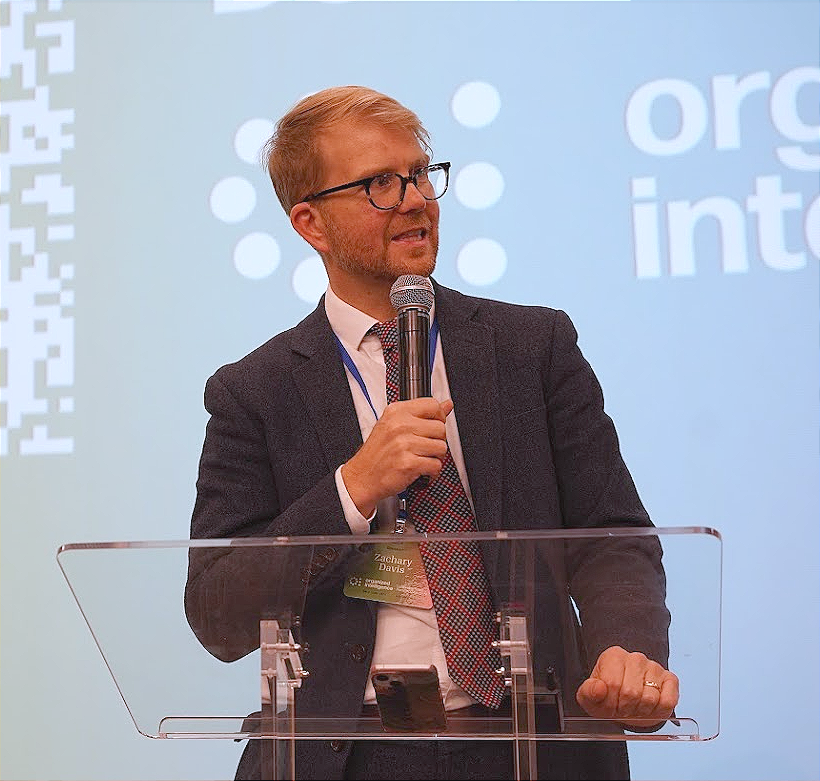
Davis framed the discussion historically, comparing AI to transformative innovations such as print in the 1500s and social media in the 21st century. Each brought profound benefits but also unanticipated costs. The question now, he said, is how to channel AI toward human flourishing rather than cognitive or social erosion.
The Human Element
Elder Gong closed on a note that underscored the human stakes. “Let us do all that we can that no one feels their best friend or most understanding companion is an AI chatbot,” he said, challenging attendees to prioritize authentic human connection in the age of artificial intelligence.
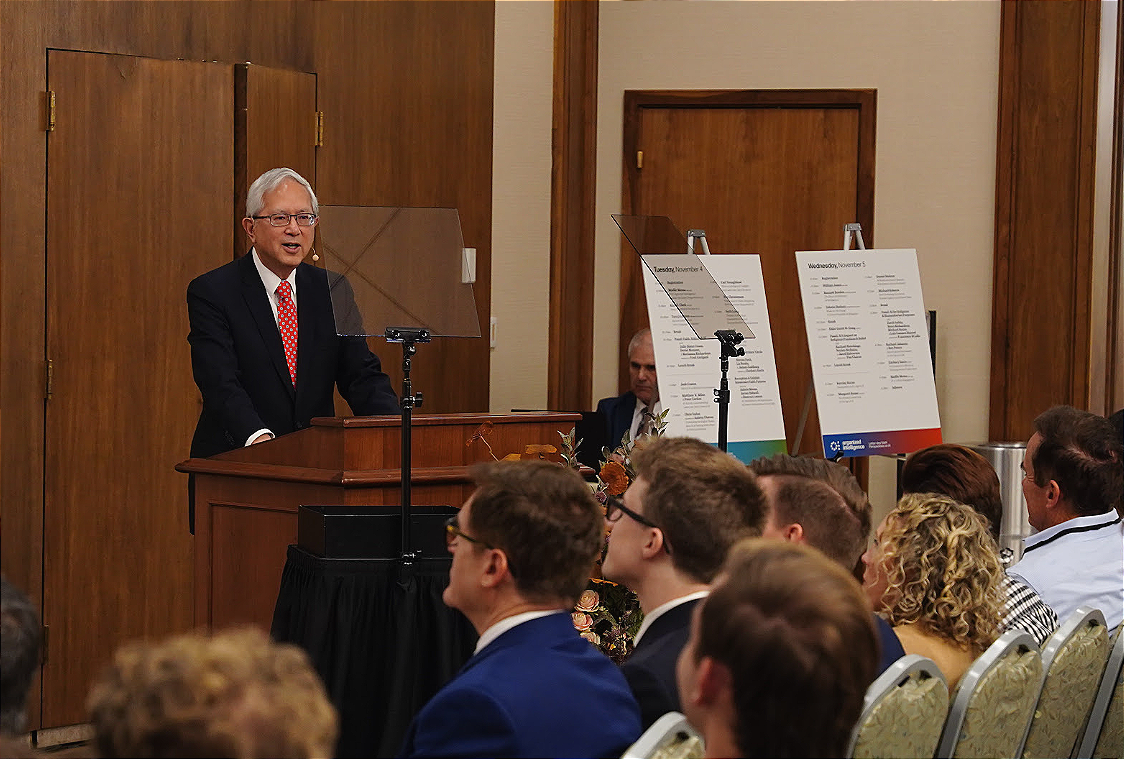
Coates’ examples reinforced this principle. While AI can answer questions and provide guidance, it cannot replicate the relational, covenantal dimension of faith. It can facilitate reflection and support, but the ultimate moral and spiritual discernment remains human.
The Organized Intelligence 2025 conference represents a unique intersection of technology, ethics, and religion. By combining theological insight with AI governance and real-world applications like LDSbot, the event signals an emerging model for faith-based engagement in global technological decision-making — a framework that places human dignity, moral agency, and spiritual guidance at the center of the conversation.
Further reading on the topic:
- Elder Gerrit W. Gong, “Faith, Ethics, and Human Dignity in an Age of Artificial Intelligence” – Religions for Peace World Council, Istanbul, July 2025.
- Elder Gerrit W. Gong, “Faith, Respect, and Moral Compass in an Age of Artificial Intelligence” – Rome AI Ethics Summit, Vatican City, October 2025. See pdf here.
- Josh Coates, LDSbot.com – An AI tool designed to answer questions about Latter-day Saint faith, scripture, and church policy.
- Medlir Mema's Age of AI Podcast.
- Wayfare's series on AI from several writers and technologists, compiled by Zach Davis, founder of Wayfare Magazine.
- Organized Intelligence 2025 Conference – Insights, recordings, and ongoing initiatives connecting AI, ethics, and faith-based perspectives.
